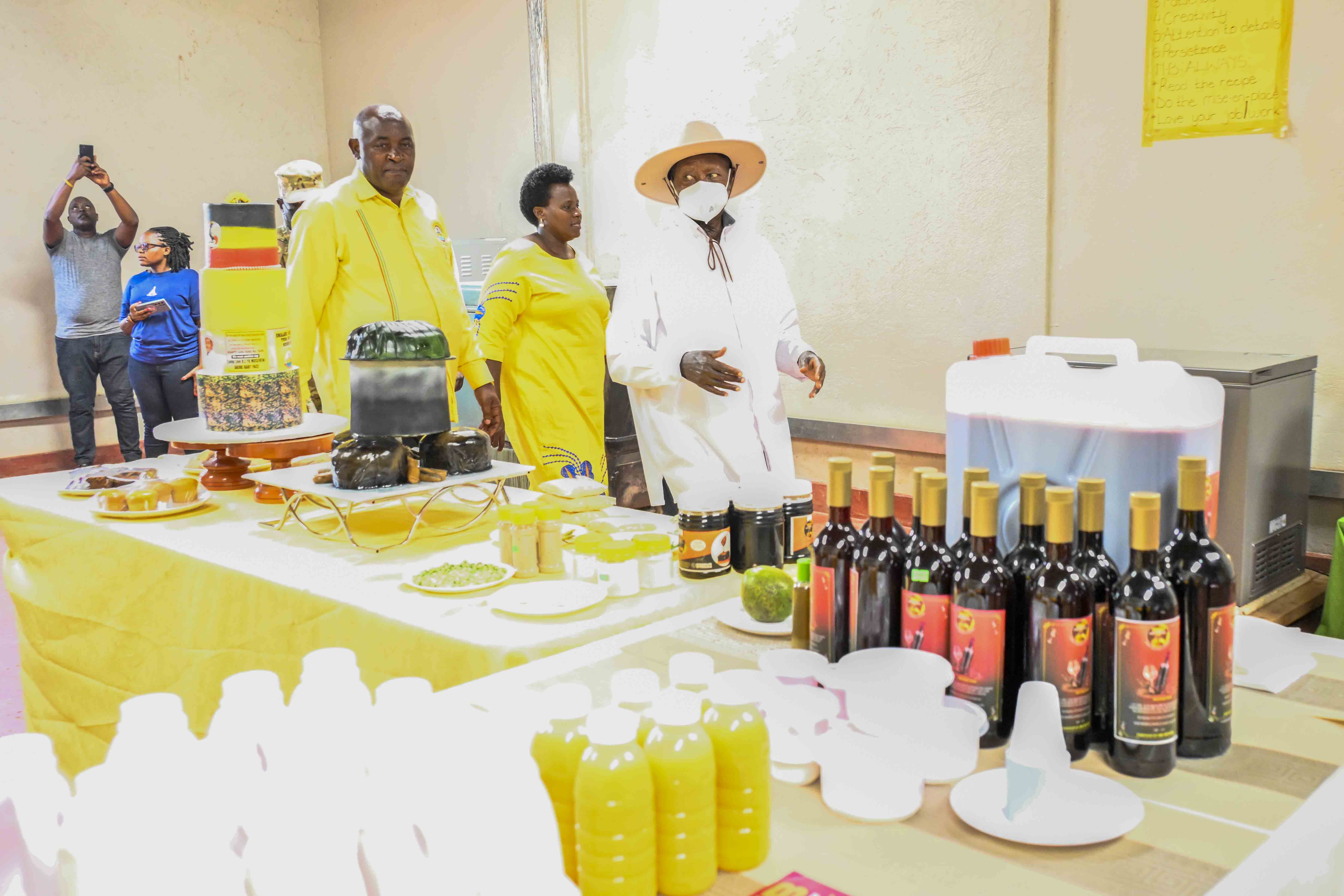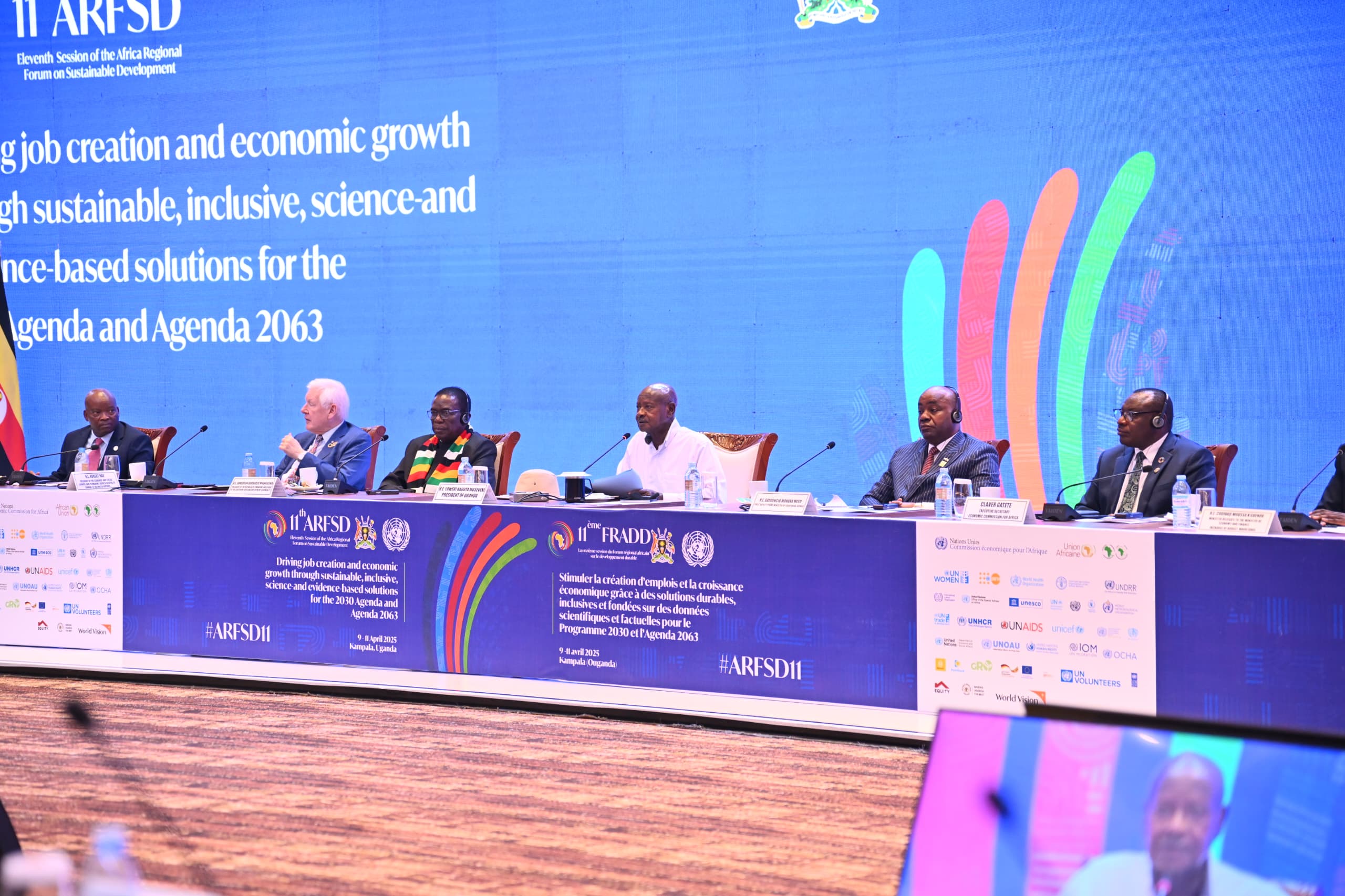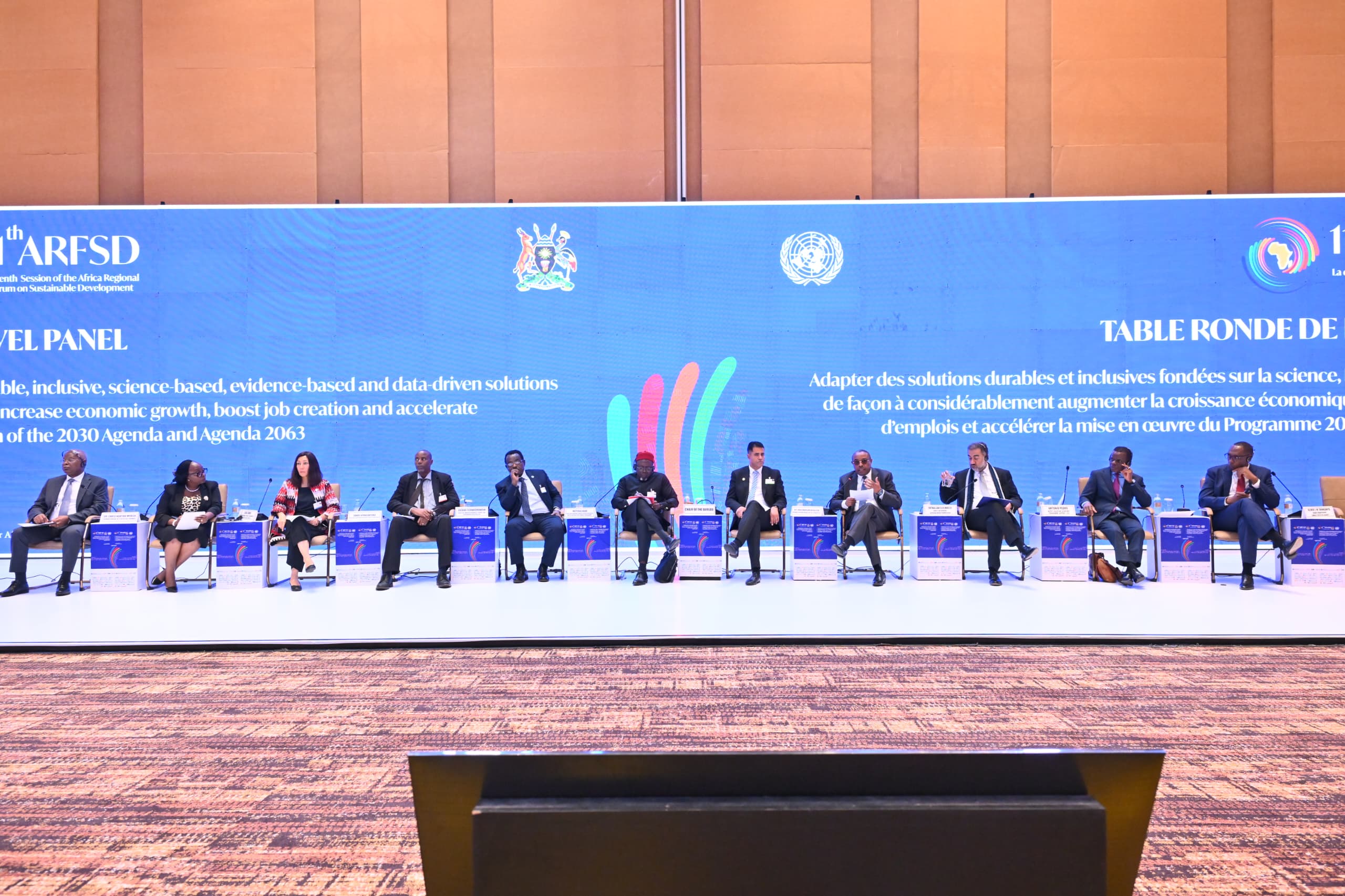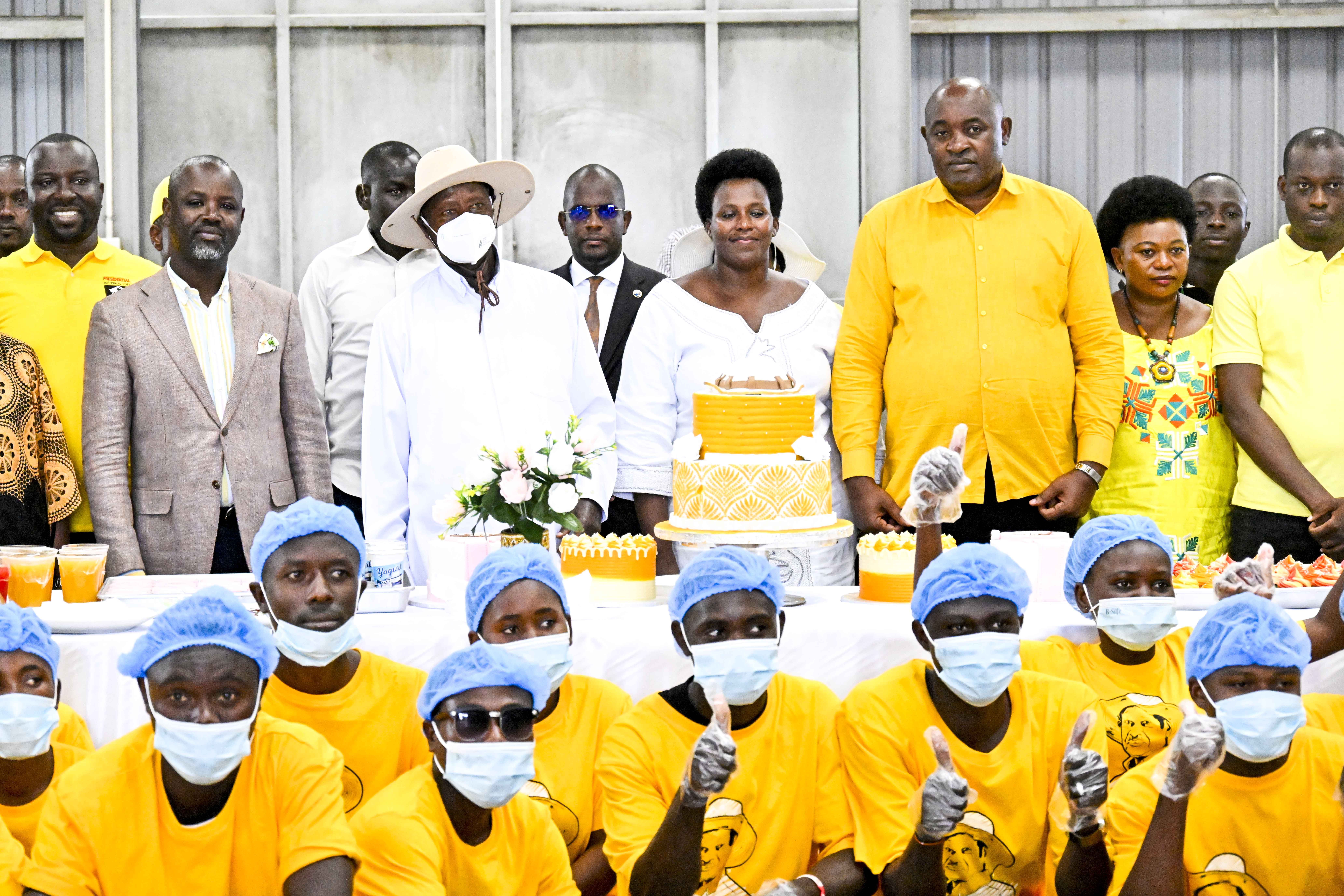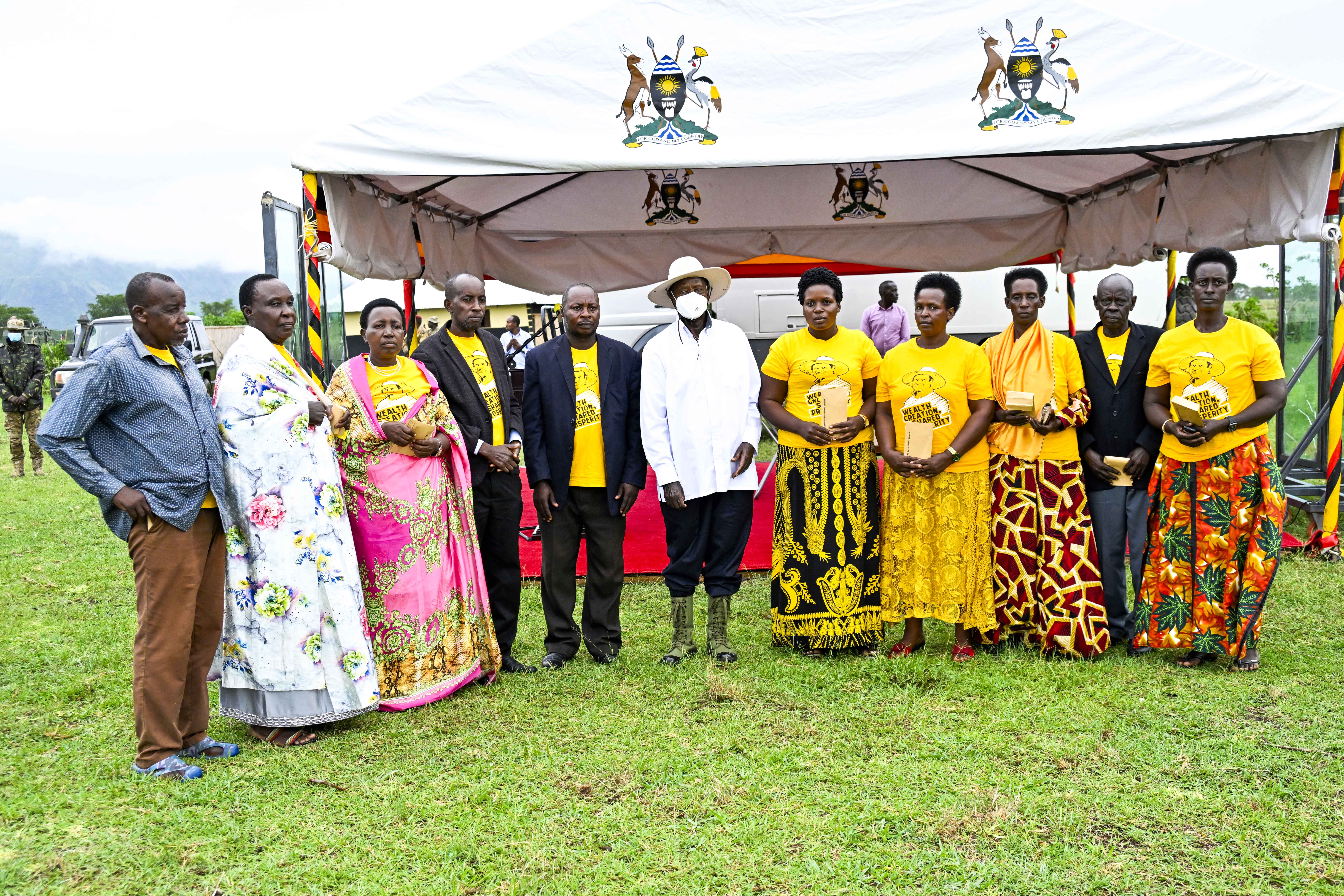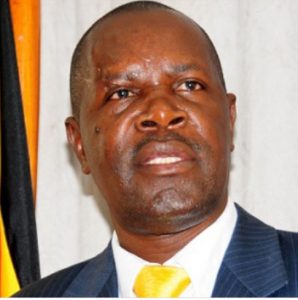PRESIDENT MUSEVENI LAUNCHES RWENZORI PRESIDENTIAL SKILLING HUB
President Yoweri Kaguta Museveni has today launched the Rwenzori Zonal Presidential Skilling Hub in Mubuku Town Council, Kasese District, as part of the government’s ongoing effort to empower youth with practical skills.
During his speech, President Museveni emphasized that the National Resistance Movement (NRM) was founded to lift people up (okukyenuura), and that education is a critical tool in this mission.
“The NRM’s work is to okukyenuura, to lift people out of poverty. The Parish Development Model is aimed at helping families economically, but this hub is here to give knowledge. That’s another form of okukyenuura,” President Museveni explained.
He drew from his personal background, revealing how exposure to education transformed his perspective and inspired him to push for free education across Uganda.
“My father, Amos Kaguta, and his father were traditional cattle keepers. They had many cows, but they were not educated. So even though we had cows, we were not living a good life,” the President recounted.
“When I went to school, by the time I reached A-Level, I had already started asking myself why can’t Uganda, why can’t Ankole, become like Europe? That was the power of education.”
It was this realization, he said, that led the NRM government to prioritize free education in the 1996 manifesto.
“I had seen what education had done for me. But in my primary school, many of my classmates dropped out because their parents couldn’t afford fees. Only a few of us made it to university myself, Kategaya, and a couple of others. The rest disappeared,” he said.
He likened the denial of education to a grave injustice.
“I said this is like murder when people aren’t educated, you’re killing their future. That’s why we insisted on free education in government schools, but people didn’t support it. They were busy demanding more districts and cities. We said yes, we can have those too but what should come first?” he inquired.
President Museveni also criticized local resistance to the implementation of Universal Primary and Secondary Education (UPE and USE), blaming some leaders for prioritizing other agendas over children’s future.
“We introduced money for free education, but it was never fully implemented. In Ntoroko, for example, they told me that only 30% of children who start nursery school reach Primary Seven. That is very bad,” he said.
“That’s why I went back to Luweero and said, ‘I am going to start Presidential Skilling Hubs in every zone.’ No one can stop me. I am the one here.”
Unlike UPE and USE, which mostly serve day scholars, President Museveni emphasized that the Skilling Hubs are fully residential and offer a more comprehensive package.
“What I am doing here is more expensive than UPE or USE. These children are accommodated with bedding, food and medical care. We are serious about giving them a future,” he stated.
The President also mentioned that he has the State House Comptroller, Ms. Jane Barekye, to begin planning the expansion of the hubs to accommodate more learners and include additional technical trades.
“We want to expand these hubs to house at least 500 learners. We shall build more dormitories and training sheds for motor mechanics, plumbing, electrical installation, weaving, and more,” he said.
To support the graduates, President Museveni announced that funding would be directed to district-based SACCOs rather than zonal ones, so that youth can easily access startup capital after completing their training.
“The training will remain at the zonal hubs, but the SACCOs for graduates will be at the district level, where people can easily access them,” he said.
In a historical reflection, the President reminded the audience that the NRM was born out of a student movement in the 1960s that rejected the divisive politics of identity based on tribe and religion.
“That’s how the problem in the Rwenzori region started. They tried to block a Mukonjo, Timothy Bazaramusa, from becoming Katikkiro of Tooro. People like the father of Mumbere walked out of the council, our student movement came in to fight that tribalism,” he recalled.
“We said no, our politics must not be about identity, but about the real needs of the people,” he added.
President Museveni further warned that focusing on identity over development continues to harm communities and hinder progress. Instead, he urged Ugandans to return to the fundamentals of human well-being.
“Yes, I studied literature and know Shakespeare. But that doesn’t solve your problems. You need food, clothing, shelter, and health. Let’s go back to the basics,” he urged.
“I am here on a resistance, resisting those who blocked free education. Let us prioritize the children. Let us give them the skills and knowledge they need to stand on their own.”
On his part, the Deputy Speaker of Parliament, Rt. Hon. Thomas Tayebwa commended the government’s efforts in transforming the lives of young Ugandans through the Presidential Zonal Industrial Hubs, describing the initiative as a powerful tool for restoring hope and empowering school dropouts to become job creators.
Rt. Hon. Tayebwa said the testimonies from the beneficiaries were proof that visionary leadership can revive lost dreams.
“The testimonies we are getting here are a true reflection that when you have a leader who is intentional and visionary, he can restore hope to those who had lost it,” he said.
“That’s exactly what is happening here for these young people, especially those who had dropped out of school. They have been given a second chance and most of them are taking advantage of it.”
He acknowledged that many of the beneficiaries have not only found purpose but are also contributing to the economy by employing others in their communities.
“These young people are no longer job seekers, they are now job creators,” he added.
In a moment of reflection, Rt. Hon. Tayebwa noted that such life-changing initiatives should have been introduced earlier and praised the leadership that made it possible.
“We must apologize that we didn’t give you this chance a long time ago. But now that we’ve seen the impact, I want to pledge on behalf of Parliament that we are going to support you even more to give more young people a second chance,” he said.
The Kasese Resident District Commissioner (RDC), Lt. Joe Walusimbi, also hailed the establishment of the Skilling Hub in the Rwenzori sub-region as a game changer in youth empowerment, job creation, and the transition to a money economy.
“We are deeply honoured to welcome Your Excellency to Kasese, and in particular to the Presidential Zonal Skilling Hub, this hub is not just a structure, it is a fountain of opportunity for our young people,” he said.
He revealed that the hub enrolls 240 trainees every six months, and to date, 897 youth have been trained including 378 females and 519 males.
“This is a direct investment in our future,” Lt. Walusimbi noted.
“The hub has created more than 37 employment opportunities, from the manager, assistant manager, and instructors all drawn from the Rwenzori sub-region.”
He thanked President Museveni and the State House for establishing such hubs across the country.
“Your Excellency, we commend you for this visionary initiative. It is bridging the skills gap, tackling unemployment, and accelerating Uganda’s shift towards a money economy. Under the guidance of the State House Comptroller, we are witnessing real transformation on the ground,” he said.
BENEFICIARIES SPEAK OUT:
Ms. Masika Shawin Plikeria had spent two years at home after completing Senior Six, unable to continue her education due to lack of school fees, but her story took a dramatic turn when a well-wisher told her about the Mubuku-based Presidential Skilling Hub.
“I was told that at this school, you don’t pay anything. I enrolled in a bakery course, and that changed my life,” Masika shared.
After completing six months of training, she briefly worked in a hotel but soon realized her passion lay in entrepreneurship. With a small contribution of Shs 150,000 from her mother, she started baking snacks and cakes from home, noting that the hub later allowed her to use their bakery facilities to grow her business.
“From that opportunity, I made a profit of Shs300,000. I kept advertising, and one day a client ordered a cake for a giveaway ceremony. I hired equipment and used what I had to make the cake. I made a profit of Shs400,000,” she said.
Her business grew steadily, with wedding cake orders now coming in at least twice a month. On good days, she earns around Shs230,000, saving 40% of her income.
“With my savings, I enrolled at university to pursue a Bachelor’s degree in Agriculture. I pay my own tuition, rent, and even support my mother,” she noted.
Beyond finances, Masika credits the hub’s mindset training for boosting her confidence.
“I can now speak to clients with confidence. That mindset shift made me who I am today. I was even elected Guild President at my university,” she added.
Mr. Thembo Rabson Kainji learnt about the skilling hub during a moment of deep personal loss at his father's burial.
“After losing my father, our area chairman spoke about the hub. I registered with the help of the town council's Community Development Officer and was selected to train in carpentry,” Thembo recalled.
His commitment to learning quickly paid off. Upon completing the course, his craftsmanship earned praise from community members who encouraged him to go further.
“They appreciated my work and asked if I could train others. That’s when a few of us decided to start our own carpentry workshop,” he added.
Today, Thembo co-runs a fully functioning workshop with fellow graduates. Their business is growing steadily, and they now serve as a local model of what vocational training can achieve.
The event was also attended by Hon. Chris Baryomunsi, the Minister of ICT and National Guidance, the State House Comptroller Ms. Jane Barekye, local leaders, among others.
2025-05-14

